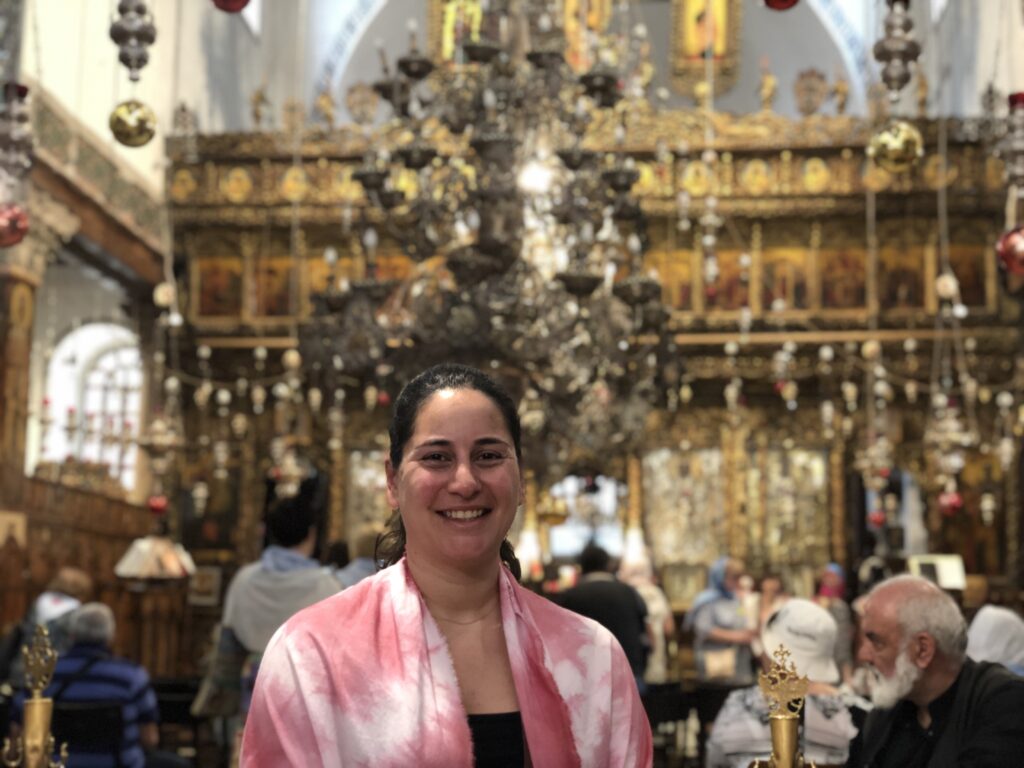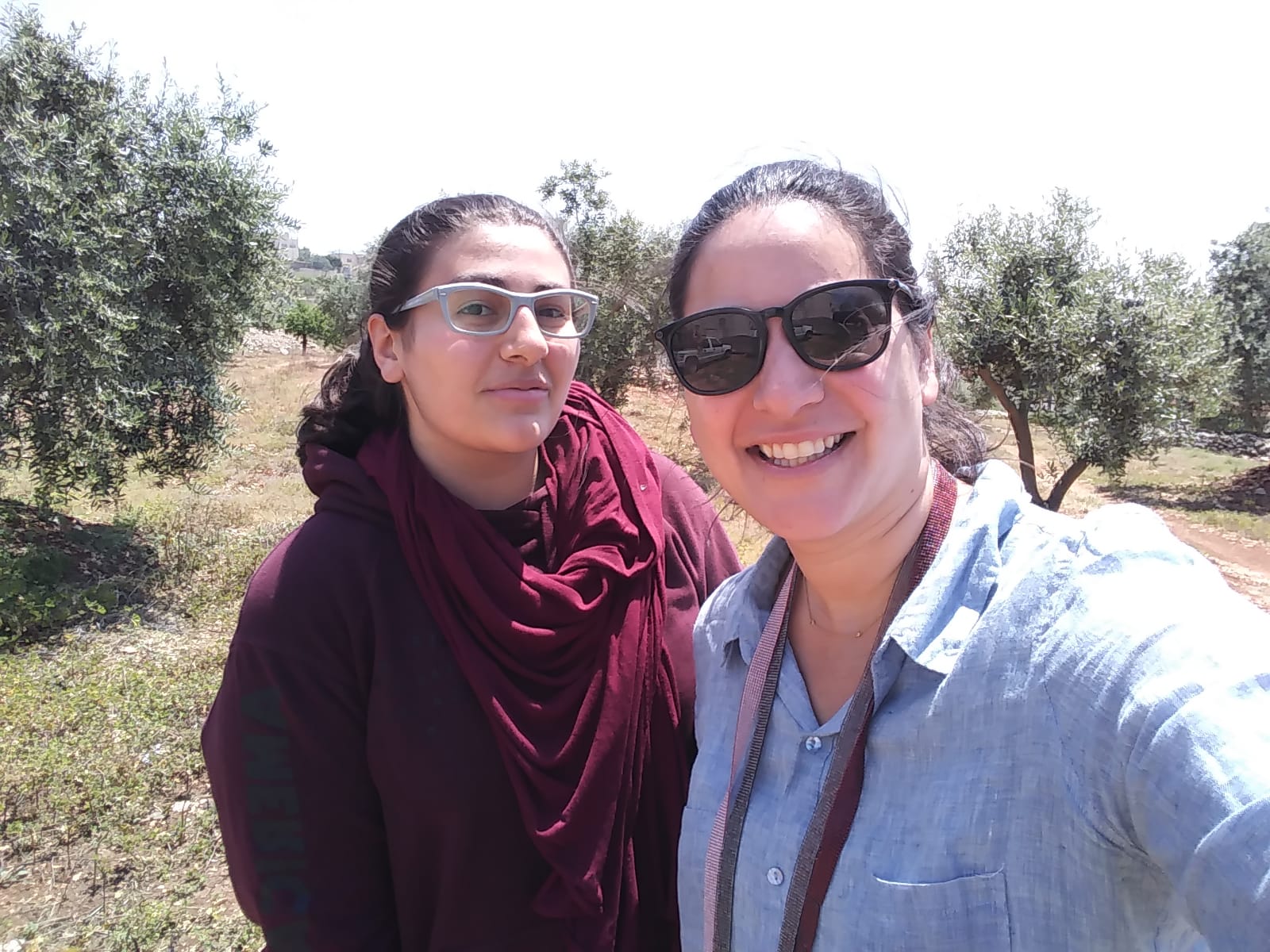
The Israel-Hamas war continues with heavy civilian casualties.
Earlier this month, Hamas launched a surprise attack against Israel, killing over 1,400 and abducting at least 130 people.
Israel retaliated with airstrikes on the Gaza Strip, killing over 2,800 people. That number is expected to rise, as airstrikes continue.
The Gaza Strip is small and densely-populated. And half of its population are children. It has been under blockade for 16 years, which means people living there can’t easily leave. The amount of food, water, fuel and electricity that crosses into the area is controlled by the Israeli government.
Vanderbilt professor Samar Ali is an international conflict resolution expert who works with the U.S. government and the United Nations. She’s also the founding president of Millions of Conversations, which is hosting an interfaith conversation about the war in Gaza later this month.
WPLN’s general assignment reporter Rose Gilbert spoke with Ali about the current conflict — and how we talk about it.
Rose Gilbert: Welcome, Professor Ali.
Samar Ali: Thank you.
Rose Gilbert: The complex relationship between Israel and Palestine was part of what made you want to go into a career as a peacemaker. Tell me a little bit about that.
Samar Ali: Yes, I grew up and am a Palestinian Syrian Muslim Southern American. I grew up in a small town called Waverly, Tennessee. And I grew up as a bicultural kid between the heartland in the United States and the Holy Land. And I would go back and forth during my summers, and I remember since even before the age of 10, thinking and dreaming about peace between Palestinians and Israelis.
 Courtesy of Samar Ali
Courtesy of Samar Ali Professor Samar Ali with one of her cousins in an olive grove on their family’s farm near Jerusalem.
Rose Gilbert: You have family overseas right now. How are they doing? Have you been able to get in touch?
Samar Ali: Yes, they’re terrified. They’re scared about what is to come. And they are traumatized by what has happened. I would say Palestinians and Israelis on on all sides have experienced communal trauma.
As somebody who’s a mother, who’s just had a baby two months ago and has a 3-year-old at home, I can’t even imagine. I mean, babies are dying. Parents are dying. Families are dying. They’re being wiped out. I spoke to somebody yesterday who lost 15 family members in the past five days. And this is very real.
Rose Gilbert: Let me ask you this: Is it too soon to think about peace?
Samar Ali: It is not too soon to think about peace. It is too soon to expect that peace will be realized tomorrow. It’s not something that you just immediately start with, but what is the alternative? What is the alternative?
I would also say that Muslims, Christians and Jews for centuries did live side by side peacefully. War is not inevitable. People say the violence is inevitable, war is inevitable, but they don’t talk about peace being inevitable. Why aren’t we having more conversations around that?
Right now, we’re grieving. And I think it’s important for us to also appreciate that. And when you’re asking for peace right in this moment, it might mean something different than what you mean in six months’ time. And to be very clear, what I mean by that is that peace at this moment means to stop the killing. And if that happens, in six months’ time, peace can take the form of beginning to talk about: What does accountability look like? That gets very specific. That gets more than ‘I’m just going to forget about everything that just happened in the name of peace.’ Nobody’s saying that.
Rose Gilbert: You know, the world is made a lot smaller by technology, but physically, Nashville is still pretty far from Gaza. What can people who are watching the news and grieving, feeling that anxiety, feeling that fear — what can they do here for peace?
Samar Ali: Speak about it responsibly. I think that we have a responsibility as citizens living in the most powerful democracy and the most powerful country in the world.
We’re seeing an uptick of heinous hate crimes against Muslims and Jews, and this past weekend, we saw a 6-year-old Muslim boy who was stabbed 26 times and killed. And in part, that’s the authorizing environment for cruelty and brutality that comes and that starts from rhetoric that is demonizing. And that creates that environment that leads some people — not all people — that leads some people to commit heinous acts that otherwise they would not have committed.
Words matter. Nashville’s voice counts. It matters. It influences.
Rose Gilbert: Thank you so much for being here.
Samar Ali: Thank you.
Samar Ali is the founding president of Millions of Conversations, which is hosting a discussion about the war in Gaza on Oct. 26.

